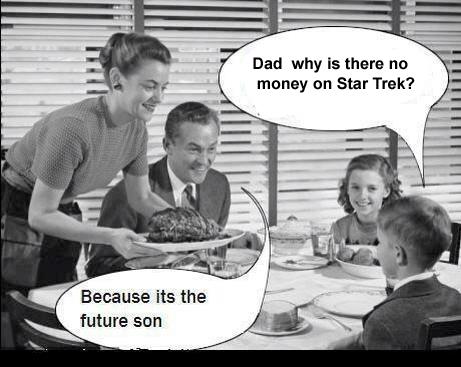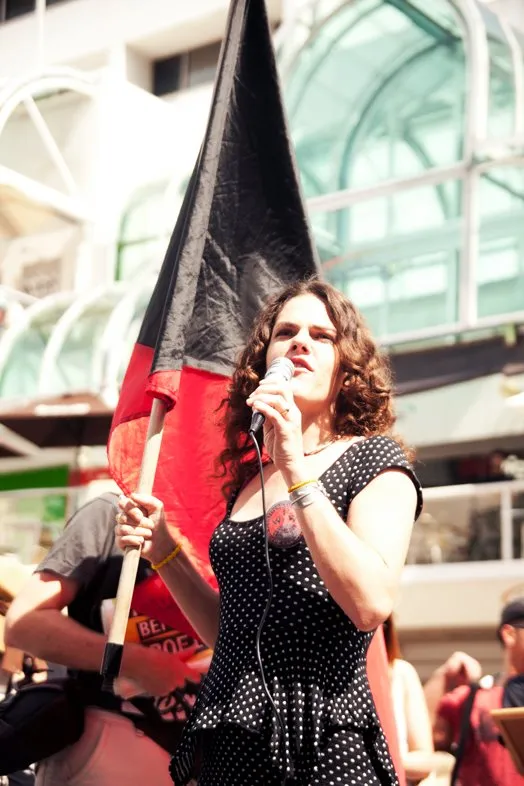Powerlessness. That’s the feeling we get when we hear the latest outrages from government or the corporate kleptocracy. Or when it hits close to home, impacting our families, neighbors, and coworkers. Powerlessness is the feeling we get when our boss calls a meeting to announce regressive policies and blames them on “the new political climate.”
We feel powerless, because it’s become more clear than ever that it’s all about power. And what is also made clear to us is that we, as working people, don’t have it. And, it seems, never will.
At least, that’s what our bosses, the politicians of both parties, and the nonprofit philanthropists want us to believe.
We are taught powerlessness precisely because they are afraid of our power when we come together and organize. Organizing involves identifying a source of collective power and a clearly defined group. In this case, I’m talking about you and your co-workers in your workplace. All your coworkers, regardless of any preconceived ideas about them.
Collectively as workers, we have all the power. It is our labor and our skills that produce everything in our society.

As members of the IWW, we organize to build power. It’s true that we organize to win immediate gains to improve our lives, but we also work to shift the balance of power. Away from employers and towards ourselves, as workers.
As individuals, it’s true, we have very little power. While we’re allowed some choice as a voter or a consumer, we are kept at arm’s-length and divided from each other, preventing us from deciding for ourselves what is important and from making it happen.
The IWW has an organizing model that is more relevant than ever in “the new political climate.”

Our organizing is Direct. We use direct action to win demands and to defend ourselves from retaliation. This has always been the best way to do it, but recent events have made it more clear that we can’t count on government agencies to do it for us.
Our organizing is Democratic. Goals and plans of action are determined by us directly through democratic committees of workers in our workplaces. With the daily assault on democratic institutions, building our power democratically is our strength and preserves our agency.
Our organizing is Caring. Through organizing, we build a culture of care and solidarity among our coworkers. We are stronger when we have each other’s backs than when we allow ourselves to be pitted against each other.
Organizing begins with growing a small group one by one, under the radar, in one workplace. Together we’re stronger than isolated individuals. As we grow further, we can start to take action, first in small ways. As we grow, build power, and gain confidence, we can choose larger and larger goals.
The big picture is daunting, and it can be hard to shake off your powerlessness. But it starts small. It starts with you. With a first step. Right now.
Take two minutes.
Grab something to write with: pen and paper or a note on your phone.
Write down the names of as many of your co-workers as you can. First names or vague descriptions are OK if that’s all you remember.
Do it right now.
The next step is to submit a request to be put in touch with one of our organizers. They can walk you through the basic nuts and bolts. In the meantime, stay careful and under the radar. Don’t start “talking union” before meeting with an organiser.

Preamble to the IWW Constitution
The Industrial Workers of the World aims to be a hub for workers and officials across different industries to liase, connnect, and share experience. Too often Australian workers demarcate along industrial lines, which recreates that state of competition that the IWW were formed to counter.
If we behave in this guild-like fashion we all end up reinventing the wheel in every industry, and we cannot keep effective track of the chains of production and where they can be disrupted. Does the capitalist class demarcate along industrial lines? of course not.
Capitalists aim to own entire chains of production, and so do we!
The working class and the employing class have nothing in common.
There can be no peace so long as hunger and want are found among millions of the working people and the few, who make up the employing class, have all the good things of life.Between these two classes a struggle must go on until the workers of the world organise as a class, take possession of the means of production, abolish the wage system, and live in harmony with the earth.
We find that the centering of the management of industries into fewer and fewer hands makes the trade unions unable to cope with the ever-growing power of the employing class.The trade unions foster a state of affairs which allows one set of workers to be pitted against another set of workers in the same industry, thereby helping defeat one another in wage wars.Moreover, the trade unions aid the employing class to mislead the workers into the belief that the working class have interests in common with their employers.
These conditions can be changed and the interest of the working class upheld only by an organization formed in such a way that all its members in any one industry, or in all industries if necessary, cease work whenever a strike or lockout is on in any department thereof, thus making an injury to one an injury to all..
Instead of the conservative motto, “A fair day’s wage for a fair day’s work,” we must inscribe on our banner the revolutionary watchword,“Abolition of the wage system.”
Questions? Send us a message.



